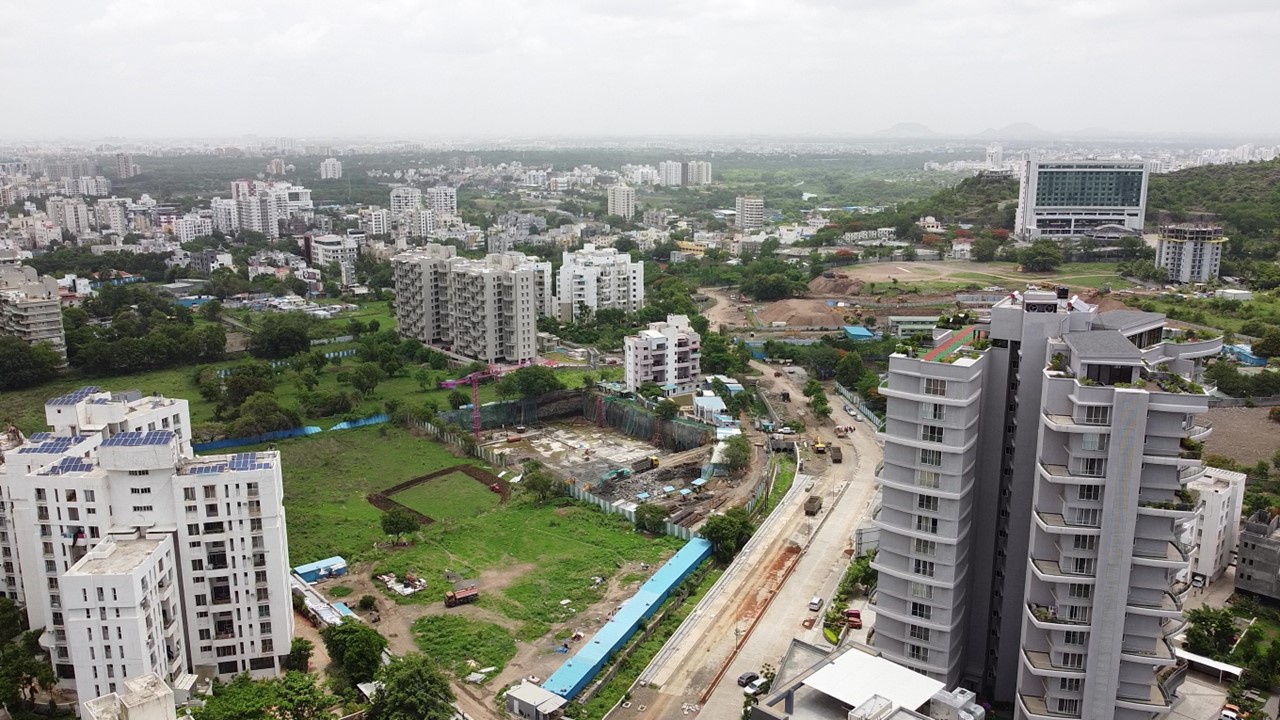Pune, the second most populous metro city in Maharashtra after Mumbai, has long been a major educational and cultural centre, thus, earning the moniker the ‘Oxford of the East’. Previously home to traditional industries, Pune has seen a significant change, benefitting from the Maharashtra government’s IT/ ITeS policies. IT parks such as the Rajiv Gandhi Infotech Park and the Hinjewadi IT Park, act as the epicentre of the IT industry in Pune. The city’s proximity to Mumbai and the presence of an international airport, coupled with access to high-quality education and talent pool, have acted as the catalyst to attract several multinational companies to the city, which is also home to more than 400 local start-ups. Pune is now considered to be one of the top IT hubs in India.Along with the IT industry, Pune is also home to many global and domestic automobile companies like Mercedez-Benz, Volkswagen, TATA Motors, Mahindra & Mahindra, etc.
Over the past decade, many infrastructure projects have come up in the city to improve intra-city, regional and international connectivity. The Bus Rapid Transit System (BRTS) corridor, the metro rail and the ring road, are currently proposed to improve the connectivity within the city. Four routes under the BRTS corridor – Aundh-Ravet, Sangamwadi-Vishrantwadi, Nashik Phata-Wakad and Yerwada-Wagholi, are already functional. Several social and physical infrastructure development projects such as road improvement, recreational parks, etc., have also been proposed for Pune, under the Smart City mission. Also, apart from the Expressway connecting Pune and Mumbai, a hyperloop project has also been announced, which will reduce the travel time between the cities, to 25 minutes.
The economic opportunities and well-planned infrastructure have made Pune an attractive commercial and residential real estate destination. The city has been one of the best-performing residential markets in terms of demand, after Mumbai, attracting many prominent developers to this city.
Check out: 1 BHK flat on rent in Pune
The latest property market trends in the city suggest the following:
- The pace of recovery in the residential sector in Pune has slowed down sequentially in Q2 2022, unlike its western counterpart, Mumbai. Our insights suggest that Pune has witnessed a 9 per cent spike in property prices for the second time straight, which has had a significant bearing on the demand and supply side. Having said that, in absolute terms, both the new supply and sales remained at par with the quarterly average of the pre-pandemic period of 2019.
- A total of 13,384 new units were launched in Pune in Q2 2022, registering a 14 per cent decline compared to the previous quarter. The majority (38 per cent) of new supply was concentrated in the INR 25-45 lakh price bracket. Developers in Pune focused on a 2 BHK configuration, which took a 59 per cent share in the overall new launches in Q2 2022.
- Maximum new supply in Pune was concentrated in the micro-markets of Ravet, Manjari and Punawale, which took a 25 per cent share in overall launches in Q2 2022.
- On the demand side, 13,720 units were sold in Q2 2022, recording a 16 per cent drop from the preceding quarter.
- Most of the sales in Q2 2022 were concentrated in the INR 25-45 lakh price bracket, which took a share of 33 per cent in the overall sales tally, closely followed by the INR 45-75 lakh price bracket, which took a share of 31 per cent in the total demand.
- Homebuyers in Pune continued to prefer units in the 2 BHK configuration, which took a share of 53 per cent in the overall sales in the city. The micro-markets such as Ravet, Hinjewadi, Moshi, Tathawade and Wakad witnessed the maximum demand in Q2 2022.
- The city’s unsold inventory stood at 1,17,985 units at the end of June 2022, and it will take 25 months or 2.1 years to offload this stock at the current sales velocity.
See also: Pune pin code







